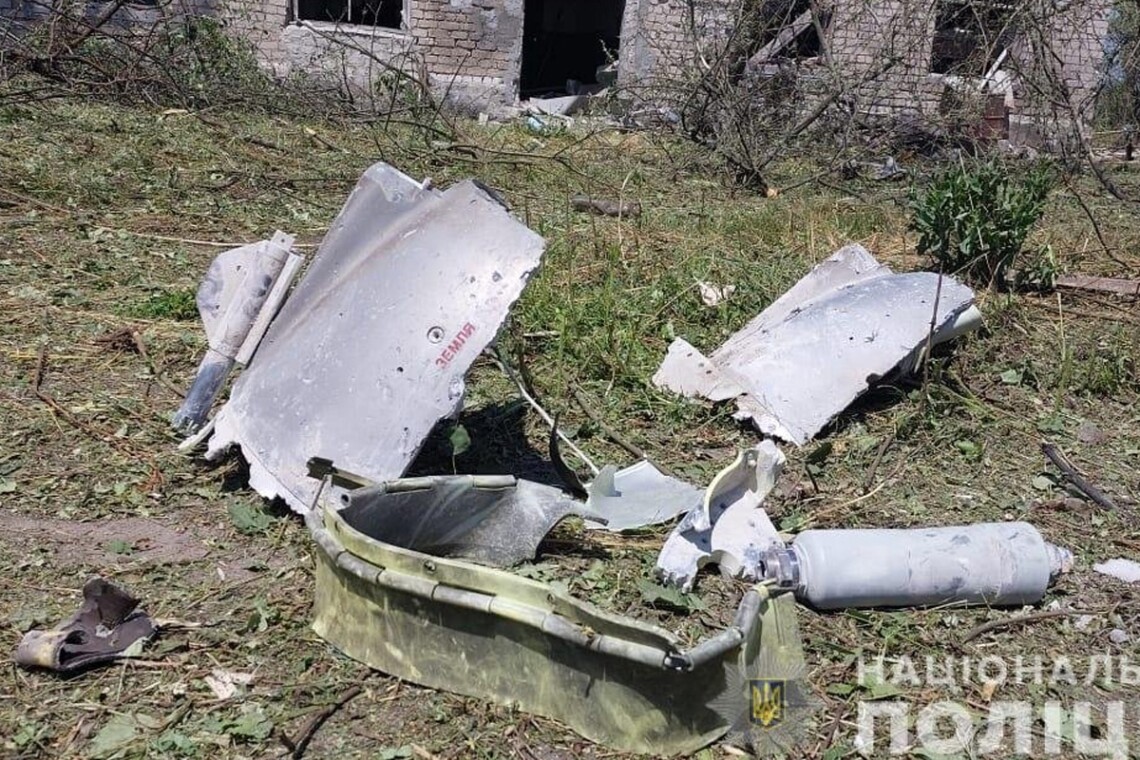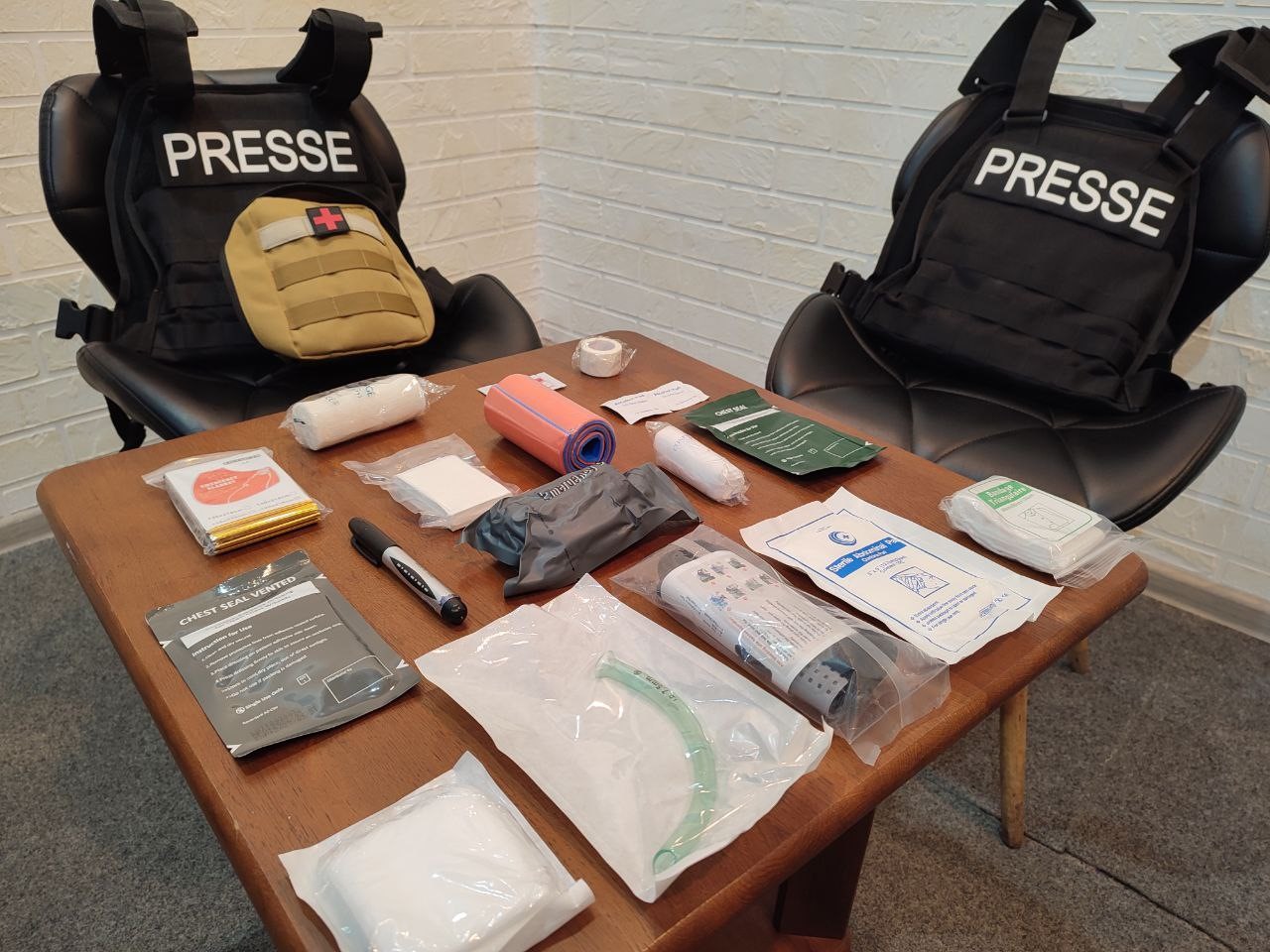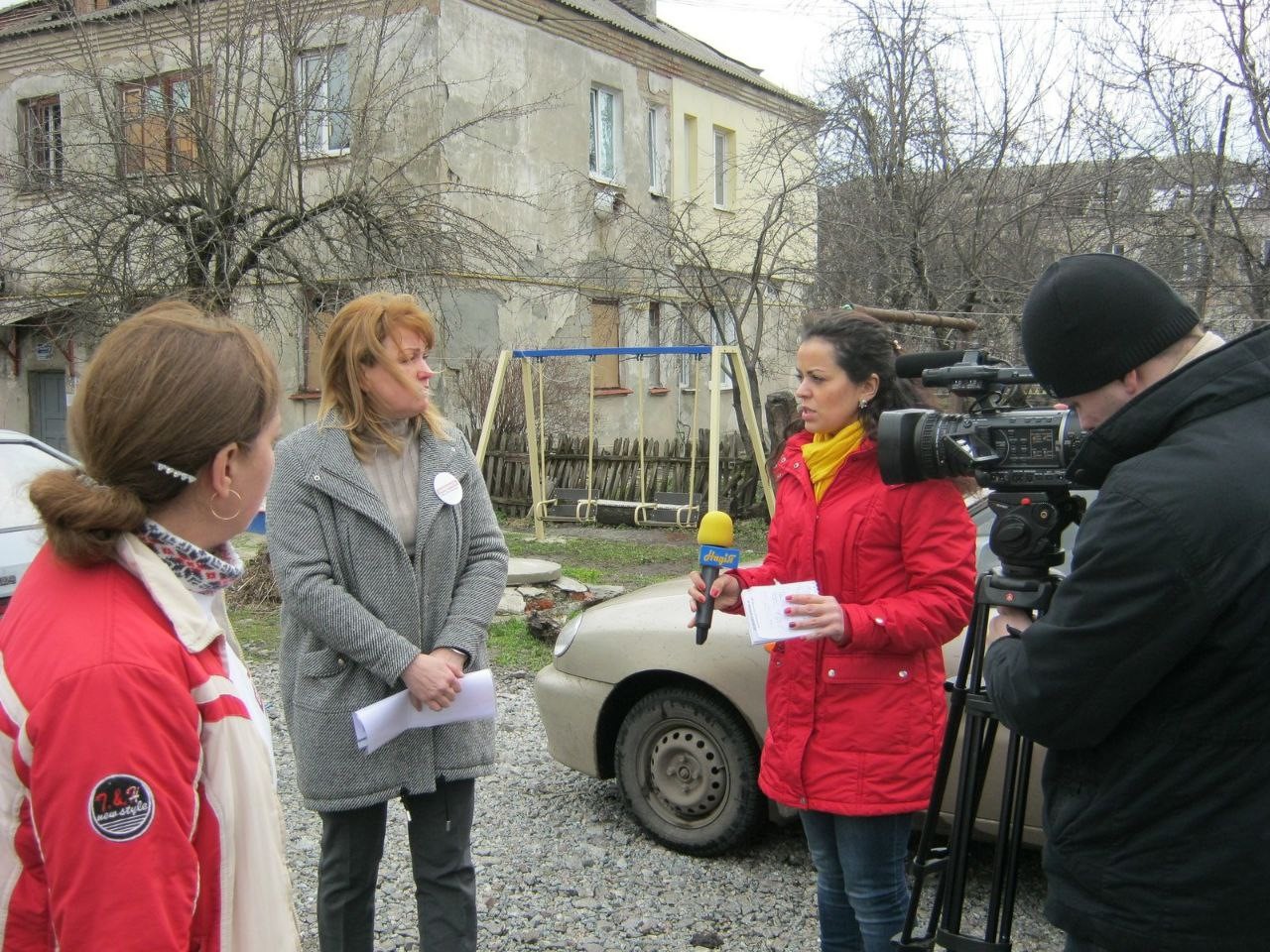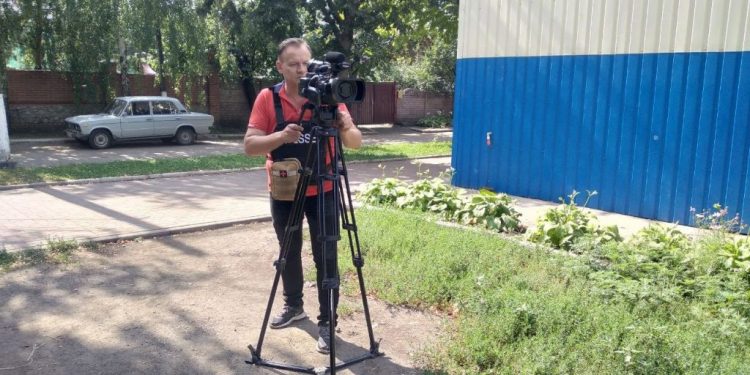Pavlo Sukharev is the director of the Nadiya TV and Radio company. Under his leadership, the regional broadcasting station has provided television and radio broadcasts in Pervomaisky and surrounding communities and villages in the Kharkiv region for the past 20 years. Each story or program is crafted with dedication, resulting in numerous state awards for their professionalism in media.
…As they went to bed on February 23rd, none of the employees at the broadcasting station could have even imagined that their lives would change forever overnight.
None of the broadcasting station’s employees left the city.
At 5 AM, Pavlo’s phone rang, waking him from his half-asleep state. Startled, he listened to his daughter’s voice – she was studying in Kharkiv – informing him of explosions in the city. Though initially unsure, he tried to calm her, thinking it might be related to emergency operations. Yet, shortly after, his daughter called back, confirming the explosions.
— She said, “No, these are explosions.” Through friends, we immediately sent a car to get her. We were unsettled because no one expected our northern neighbors to dare bomb Kharkiv. The journey took about four hours. This was surprising because the distance from us to Kharkiv is only 80 kilometers, and usually, we cover it in about 1.5 hours. However, the main road was blocked, so we had to take an alternative route to bring our child back to Pervomaisky. Together with my daughter, we picked up other students, including our friends’ daughter who was studying there, and brought them all home.
When Pavlo’s daughter finally arrived home, the country had already declared a state of war. The question arose: should they leave or stay? Remarkably, none of the broadcasting station’s staff planned to leave. Consequently, on February 24th, the entire team showed up for work. From the start, they used their resources to broadcast the national telethon “Unified News” and the radio broadcasts from UA:Ukrainske Radio. Pavlo remembered creating content at a remarkable pace, operating with unmatched speed.
— From day one, we began to provide official video materials from the Office of the President of Ukraine, recording statements from the head of the Regional State Administration, officials of our city, and offering recommendations from law enforcement, representatives of the State Emergency Service, and medical professionals. The situation was changing rapidly, and we learned to act with great urgency. We trained our speakers on how to appear on camera, what ‘cut-ins’ and ‘live feeds’ were, and how to speak directly to the audience. They, having been trained in the TV style, concisely and accessibly delivered these messages to the public. We traveled to them, and they visited us. We filmed and immediately aired it. There was no time for editing,— Pavlo Sukharev explained.
Operating swiftly, the Nadiya TV and radio team worked consistently throughout spring. While the people of Pervomaisky heard explosions, rockets initially missed their town. Unfortunately, this changed when the occupiers eventually targeted their area.
— On June 17th, a rocket struck one of the municipal enterprises in the city. It hit a two-story building and the security checkpoint at the entrance to the enterprise’s premises. Windows, ceilings, and walls of the building were damaged. Two men and a woman, employees of the enterprise, were injured. They were taken to the hospital,— continued Pavlo Sukharev, the director of Nadiya TV and Radio company.

Despite the significant danger, neither Pavlo nor his team left their work or city. After the explosion, the question arose of how to protect the journalists since there were no means to buy first aid kits, let alone body armor. They reached out to the National Union of Journalists of Ukraine for help.
— None of us, journalists, were prepared to work in wartime conditions. During such a period, protective gear was essential for us. It was very heartening that our National Union of Journalists of Ukraine found a way to gather these first aid kits and deliver them to us. So, we received three bulletproof vests and three medical kits. We use them when we sense danger intuitively,— says Pavlo.

Additionally, thanks to the support from the National Union of Journalists and international partners, Pavlo managed to preserve all the TV equipment and acquire some new ones.
— The National Union of Journalists surveyed media needs, and I applied to our TV and radio company. Understandably, there were no funds to purchase anything with the pandemic and then the war. Literally, in a few days, they contacted me: they inquired about the equipment specifications, and after some time, they sent us a new microphone, camera, wires, which were also very important, power banks, power supplies, and even an audio recording station, and much more. All of these are already in use for us,— says Pavlo Suharev.
If there’s a desire to work, opportunities will always be found.
Indeed, the war brought significant financial difficulties. There are almost no advertisers left. However, thanks to grants, Ukrainian regional journalism is staying afloat. The main thing, Pavlo assures, is not to fall into despair because there’s always a way out. As they say, when one door closes, another opens.
— We engage in international grant competitions, investing time and effort. Just a couple of successful applications feel like victories. Currently, we’re prioritizing collaboration with local communities, signing agreements, covering significant local events, and sharing how communities navigate these wartime challenges,— explains the head of Nadiya TV and Radio Company. — Our interaction with internally displaced individuals is a key focus, providing us with modest funds to sustain our work.

Journalists also actively develop their channel’s website and manage groups and pages on social media platforms such as Facebook, Viber, Telegram, and Instagram. They plan to venture into TikTok soon.
“Not just wait for victory, but also bring it closer with all our might.”
— Everyone is waiting for victory, but I will say that waiting is not enough. We need to not only wait for victory but also bring it closer with all our might. I believe that our media does everything possible, sometimes even the impossible, to maintain our information front and provide people with truthful and verified information,— Pavlo concludes.
The work of the Nadiya TV and radio team during the war has not gone unnoticed. In June 2022, Pavlo received recognition from the Cabinet of Ministers of Ukraine for his contribution to media development and his work under highly challenging conditions.
This series, titled Executed Free Speech, is created as part of a project Drawing Ukrainian And International Audience’s Attention To Serious Violations Of Human Rights And Crimes Against Journalists And Mass Media By The Russian Federation, which is performed by the National Union of Journalists of Ukraine, with support from the Swedish non-profit organization Civil Rights Defenders.
JOURNALISTS ARE IMPORTANT. Stories of Life and Work in Conditions of War is a cycle of materials prepared by the team of the NUJU with the support of the Swedish human rights organization Civil Rights Defenders.
#CRD

 THE NATIONAL UNION OF
JOURNALISTS OF UKRAINE
THE NATIONAL UNION OF
JOURNALISTS OF UKRAINE
















Discussion about this post